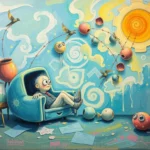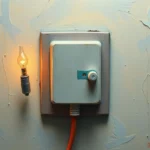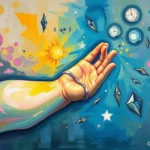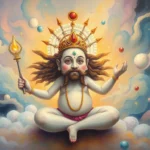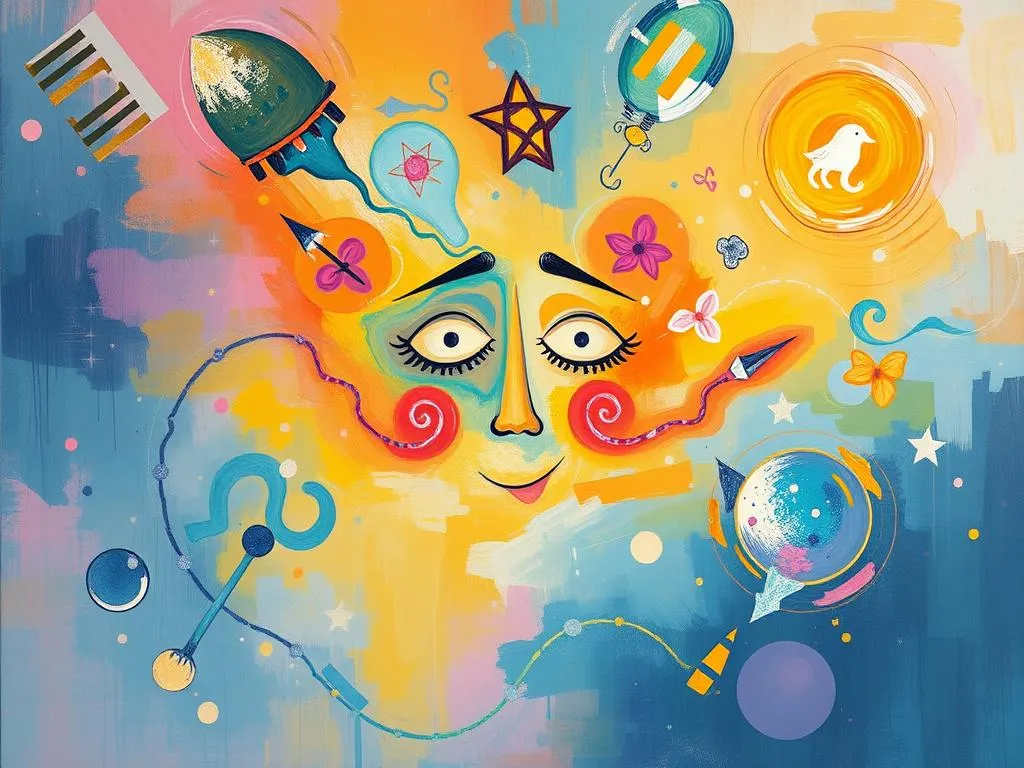
Introduction
Dreams have fascinated humanity for centuries, acting as windows into our subconscious and revealing hidden aspects of our identity. Among the myriad of dreams we experience, those that revolve around the theme of identity often stand out as particularly poignant. They tap into our deepest fears, desires, and the complexities of self-perception. The intrigue surrounding these dreams lies in their capacity to challenge our understanding of who we are and who we aspire to be.
As we delve into the symbolism and meanings behind dreams related to identity, we will uncover layers of meaning that reflect our inner worlds. These dreams can serve as vital clues to our self-discovery journey, allowing us to confront aspects of ourselves that we might otherwise ignore.
Symbolism and Meaning
Dreams that involve identity often feature a variety of symbols that serve as signposts to our inner thoughts and feelings. One common symbol is the mirror. In dreams, mirrors often symbolize self-reflection and the perception of one’s true self. If you dream of looking into a mirror and seeing a distorted version of yourself, it may indicate feelings of insecurity or confusion about your identity. Conversely, a clear reflection can signify self-acceptance and clarity in your personal life.
Another prevalent symbol in these dreams is masks. Masks can represent the roles we play in society or the personas we adopt to navigate social situations. Dreaming of wearing a mask might suggest that you are hiding your true self, either from others or even from yourself. This could reflect a desire to conform to societal expectations at the cost of authenticity.
Names also carry significant weight in identity-related dreams. If you dream of introducing yourself with a name that feels unfamiliar, it may signal a transformation or a shift in your personal identity. Such dreams compel you to explore the aspects of yourself that you may have neglected or wished to change. On the other hand, encountering someone from your past with a strong association to your identity—like an old friend or family member—can evoke feelings of nostalgia and prompt reflection on how you have evolved over time.
Additionally, clothing is a powerful symbol of identity. The garments we wear in our dreams may represent the roles we choose to embody in waking life. For example, dreaming of wearing formal attire might suggest a desire to assert yourself in professional or social situations, while dreaming of being undressed can symbolize vulnerability or a fear of exposure.
Ultimately, these symbols serve as a canvas on which our subconscious paints our fears and aspirations. By interpreting these symbols, we can glean insights into our personal journeys and the identities we construct.
Key Scenarios and Variations
Dreams about identity can manifest in a multitude of scenarios, each offering a unique lens through which to view our inner selves. One common variation is the identity crisis dream, where the dreamer finds themselves in a scenario where they struggle to recognize themselves or others. This type of dream often arises during times of transition or uncertainty, reflecting a disconnect between one’s current reality and desired identity. In such dreams, the dreamer may encounter situations that force them to confront unresolved issues regarding self-esteem or self-worth.
Another variation is the reunion dream, wherein the dreamer meets someone significant from their past. This scenario can bring forth feelings tied to nostalgia, regret, or longing for a time when one felt more authentic. The emotions experienced in this dream may shed light on unresolved relationships or the impact of past experiences on current self-identity.
On the other hand, there are dreams where the dreamer might experience role reversals. For instance, switching places with someone else or taking on a different persona can symbolize the exploration of different facets of identity. This scenario may arise when individuals are feeling constrained by societal roles or expectations and yearn for freedom to express their true selves.
The concept of being chased in dreams is another powerful scenario associated with identity. The pursuer often embodies aspects of the dreamer’s fears or insecurities. In this context, being chased can represent an avoidance of confronting one’s true self or unresolved emotional issues. Reflecting on who or what is chasing you can reveal the deeper layers of your identity that you may be shying away from addressing.
Through these varied scenarios, we can see that dreams about identity are deeply personal and can evoke a wide range of emotions. Each dream carries its own narrative, inviting the dreamer to explore and confront their inner landscape.
Real-Life Connections and Takeaways
Connecting dreams about identity to real-life situations can be a powerful tool for self-reflection and growth. These dreams can prompt individuals to evaluate their current life circumstances and the roles they play within them. For example, if you frequently dream of wearing a mask, consider whether you feel you are being your authentic self in your daily life or if external pressures are prompting you to adopt a facade.
Practical advice for self-reflection includes keeping a dream journal to document your dreams upon waking. This practice can help reinforce the symbols and themes that arise in your dreams, providing clarity over time. Analyzing the emotions you experience during these dreams can also offer insight into your waking life. Ask yourself questions such as: What feelings did I experience? How do they relate to my current life situation? What aspects of my identity am I grappling with?
Engaging in conversations with trusted friends or family members about your dreams can also facilitate deeper understanding. Sharing your dreams allows for different perspectives, which may help illuminate aspects you had not previously considered.
Moreover, consider incorporating practices that encourage self-discovery, such as mindfulness or meditation. These activities can help you cultivate a greater awareness of your inner thoughts and feelings, making it easier to confront and integrate the insights gleaned from your dreams.
Ultimately, the journey of understanding our identity through dreams is ongoing and ever-evolving. Every dream serves as a reflection of our inner state, offering opportunities for growth and transformation. By paying attention to the messages our dreams convey, we can embark on a path toward greater self-awareness and authenticity.
As you reflect on your own dreams, take the time to consider what they reveal about your hidden identity. What symbols resonate with you? Are there recurring themes or scenarios that prompt deeper inquiry? Remember, the exploration of identity is a personal journey, and your dreams may hold the key to unlocking the parts of yourself that yearn to be recognized and embraced.
In conclusion, dreams about identity are rich with symbolism and meaning, offering profound insights into our inner lives. By exploring these dreams thoughtfully, we can uncover hidden aspects of ourselves and embark on a path of self-discovery that leads to greater authenticity and self-acceptance. Embrace the journey, and allow your dreams to guide you toward unveiling your true identity.

